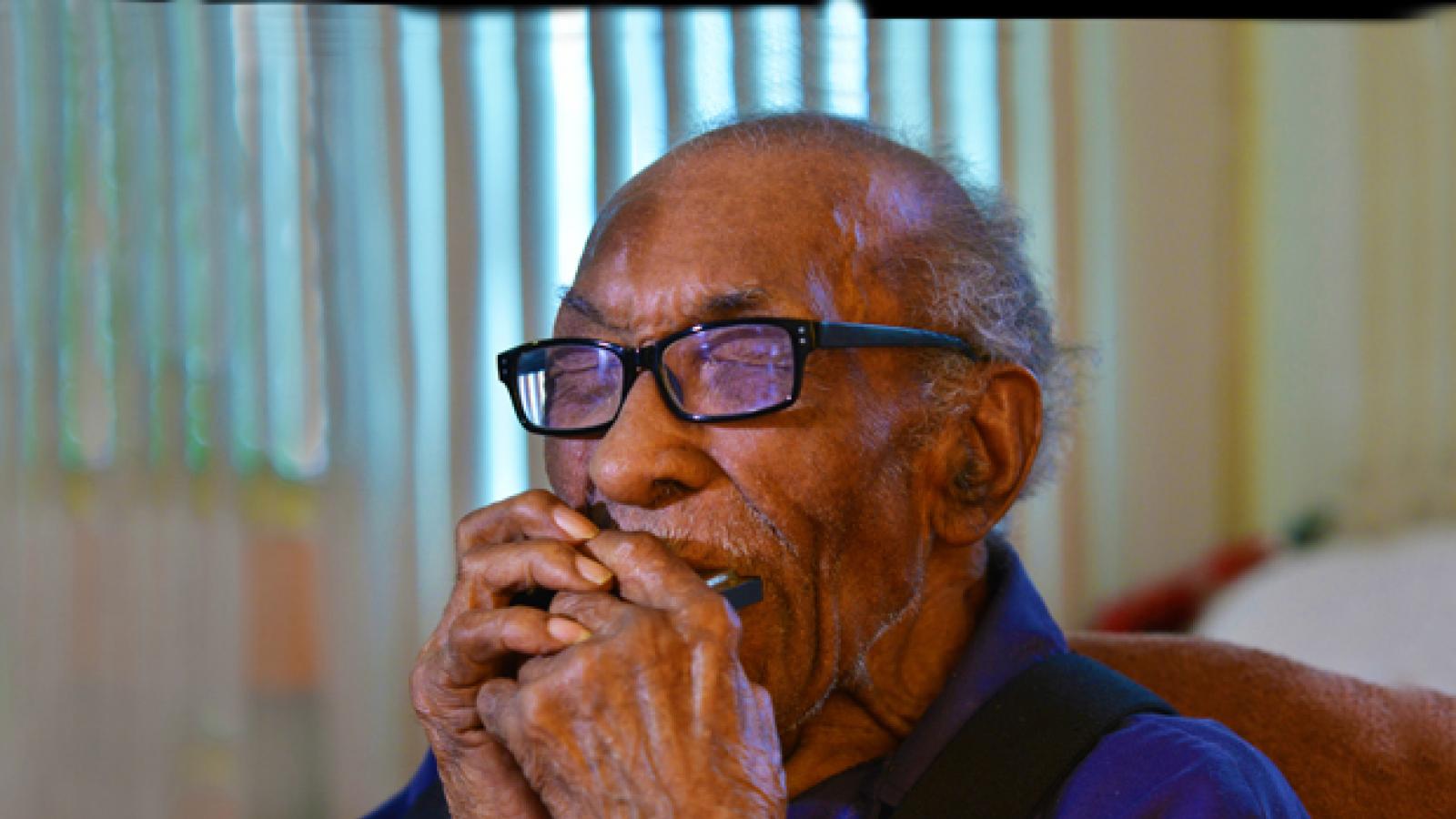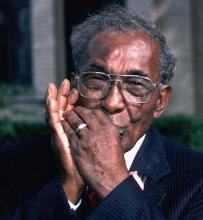National Endowment for the Arts Statement on the Death of Elder Roma Wilson

It is with great sadness that the National Endowment for the Arts acknowledges the death of African-American harmonica player Elder Roma Wilson, recipient of a 1994 NEA National Heritage Fellowship—the nation’s highest honor in the folk and traditional arts.
Born December 22, 1910, in Tupelo, Mississippi, Wilson was one of ten children raised on his parents' cotton farm where at night his father often told stories and played the harmonica. When Wilson was 15, he taught himself to play the harmonica, using an instrument that his older brothers had discarded.
At age 15, Wilson began working for the railroad and at sawmills. Later that year, he said, he "got converted," and within two years he was called to the ministry of the Holiness Church. He was ordained when he was only 17 years old and became an evangelist, preaching at different churches until he was appointed pastor of his own congregation. In his ministry, Wilson believed in the harmonica as an instrument of faith and focused his repertoire exclusively on spiritual songs.
As a young man, Wilson learned from masters of both traditional secular and sacred harp. He learned to "choke" the harps in order to get traditional sounds from them. He became known throughout Mississippi for his arrangement of the song "This Train." Recalling the Scripture about the Lord's train, he decided to build the lyrics around the idea of God's train and mimicked the sounds of the railroad yards where he used to work. In the song, Wilson added the shuffling locomotive sound of a train, alternating his singing with "letting the train run" on the harmonica.
In 1935, Wilson left Mississippi with his wife and children, working for the Missouri Pacific Railroad and laboring as a farmer in Arkansas before finally settling near Detroit, Michigan. When his children were still young, he and three of his sons, whom he had taught to play harmonica, often performed their unique style of religious music on the streets of Detroit. Joe Van Battle, owner of Joe's Record Shop, covertly recorded their street playing in 1948 and sold his recordings of "Lily of the Valley" and "Better Get Ready" to the Gotham label. It wasn't until the 1980s that Wilson learned of these records, and eager gospel music listeners learned the life story of the "unknown" musician identified on the recordings as "this charismatic preacher who blew harp."
He went home to Mississippi after his wife died in 1976, and returned to his original church, the Church of the Living God. There he re-married and also reunited with Reverend Leon Pinson, a blind guitar player with whom he had traveled the "brush arbor circuit" of rural churches decades earlier, preaching and playing religious-inspired music. The men resumed traveling and performed together all over the country. Wilson worked as the presiding elder for a group of Holiness churches in eastern Mississippi and when not visiting his churches, he participated in services at other churches, where he sometimes played harmonica or preached sermons.
More information on Elder Roma Wilson is available at arts.gov.
Related Content
Contact
NEA Public Affairs
202-682-5570





